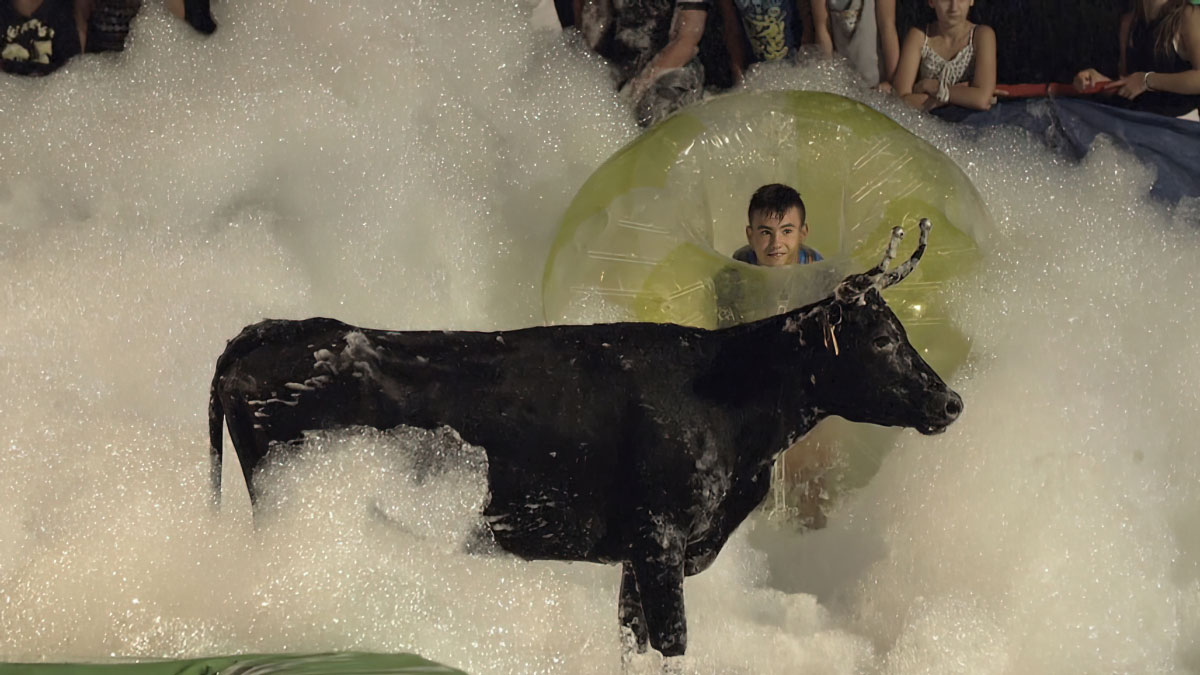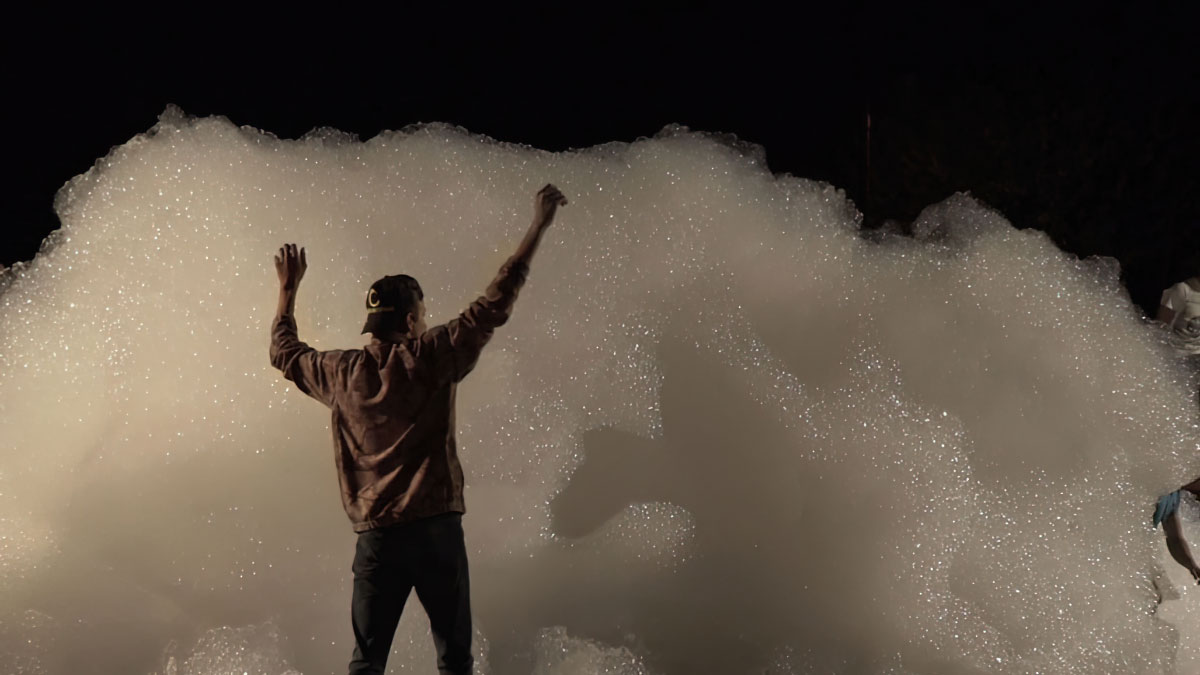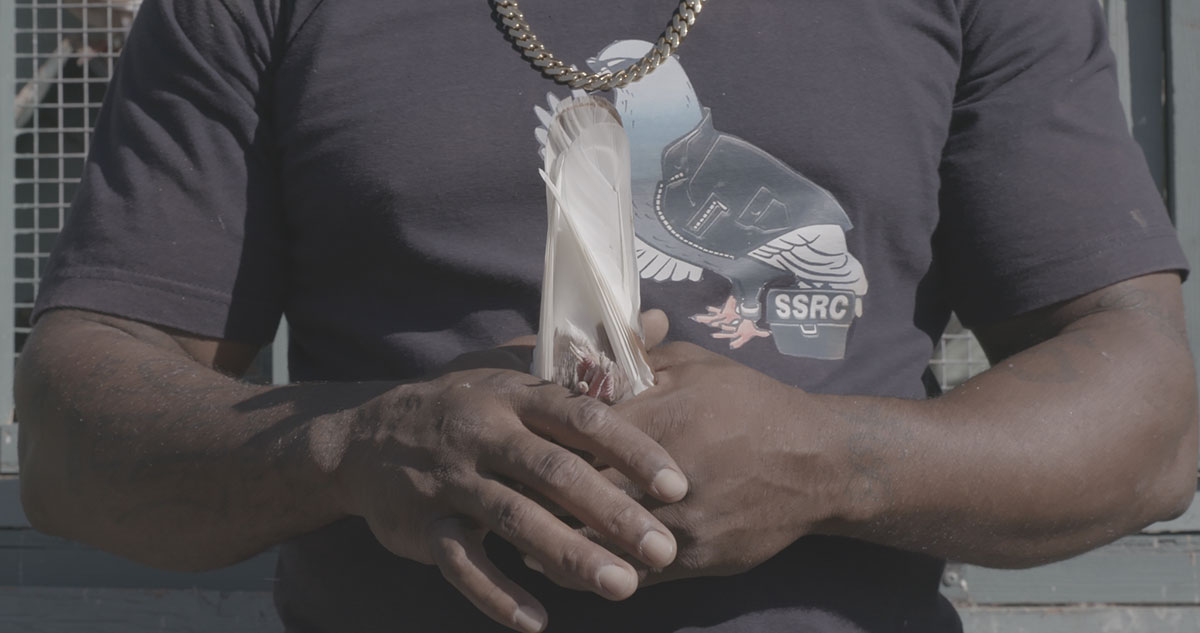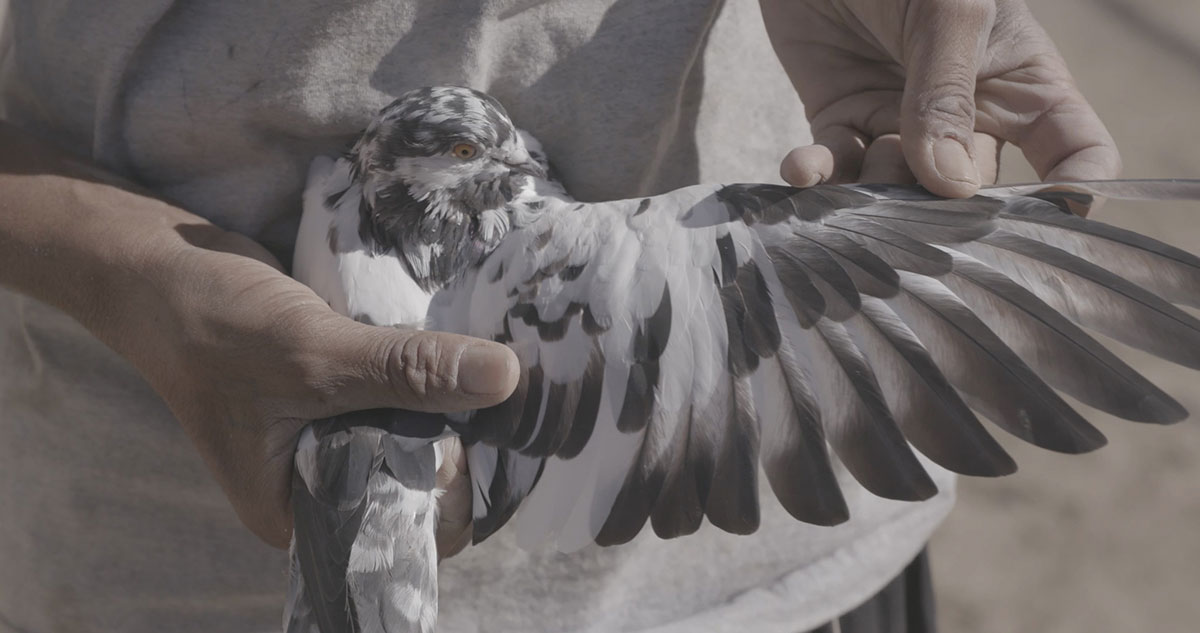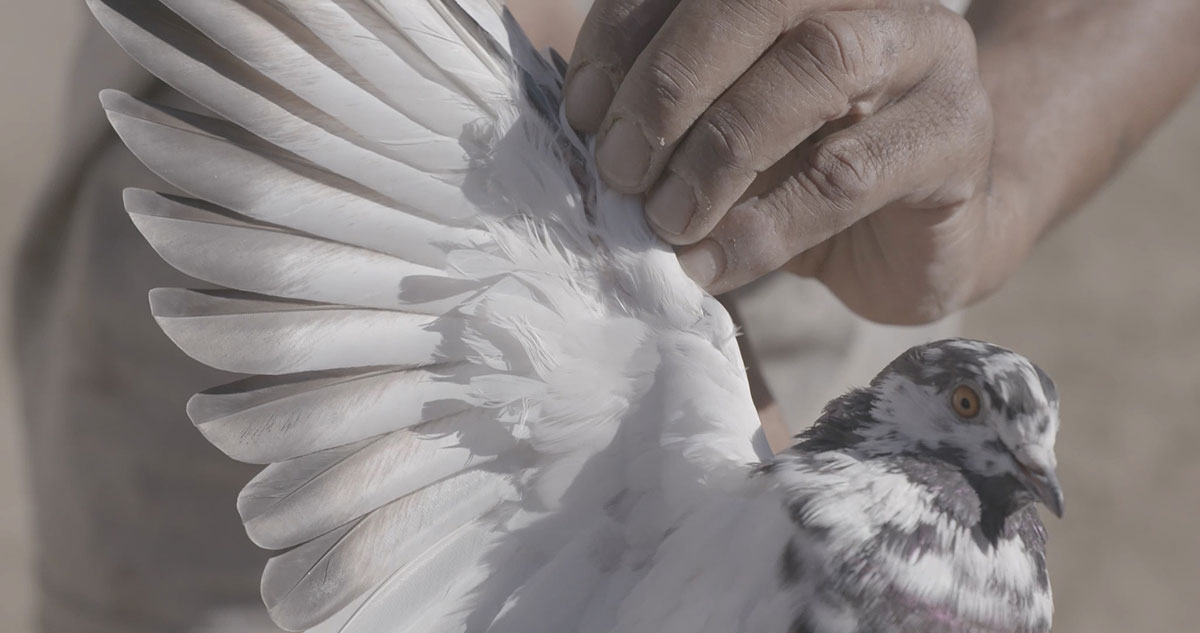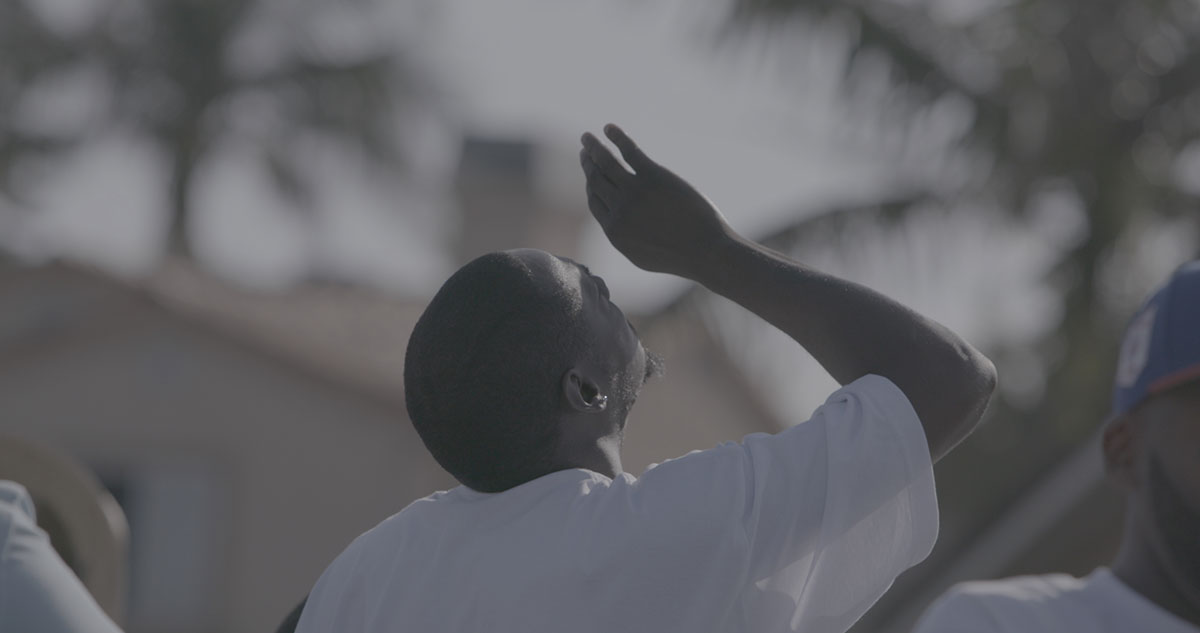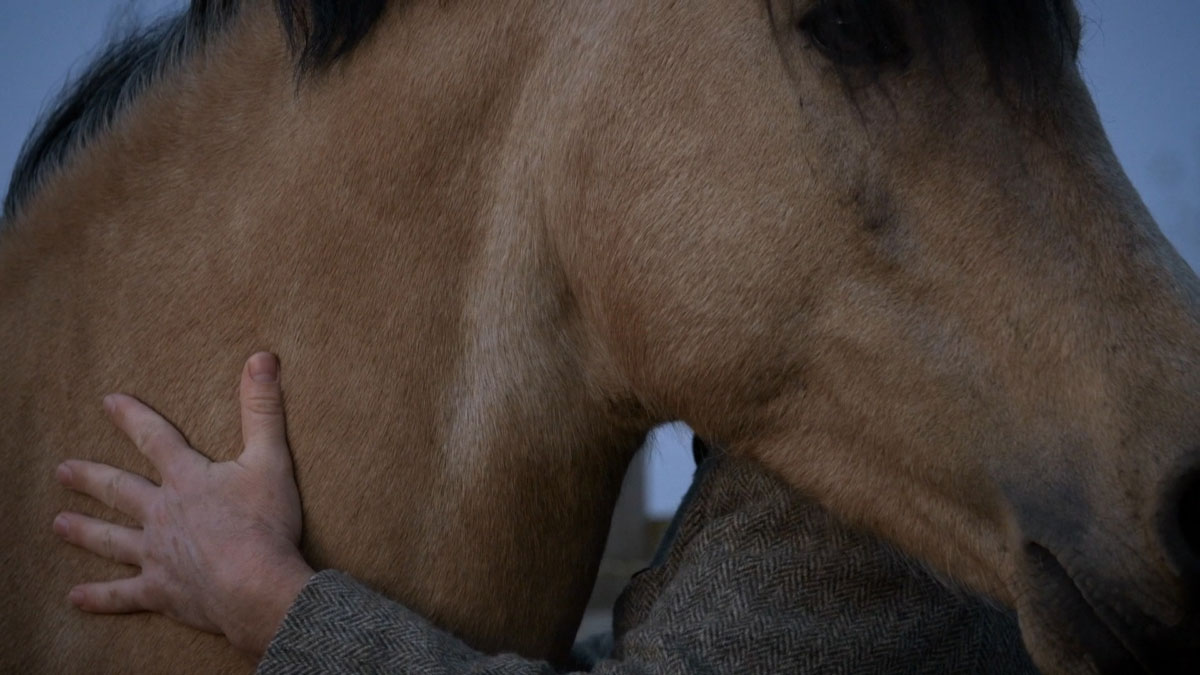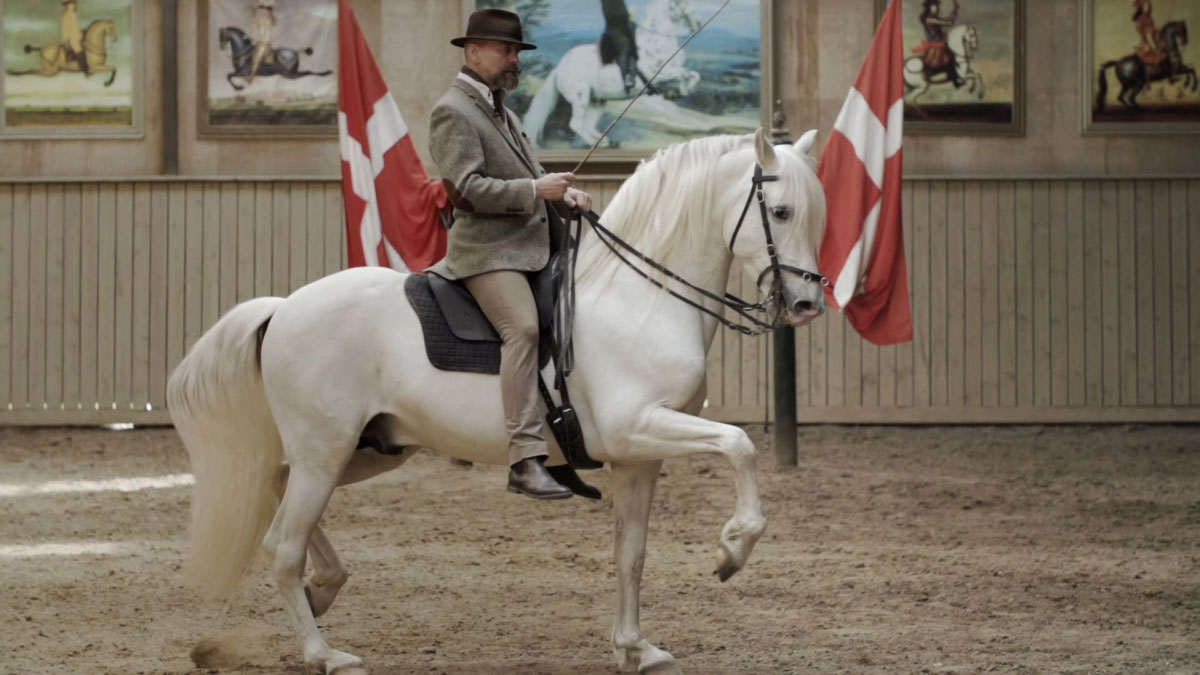PRESENTATION: Yalda Afsah-Every Word Was Once An Animal
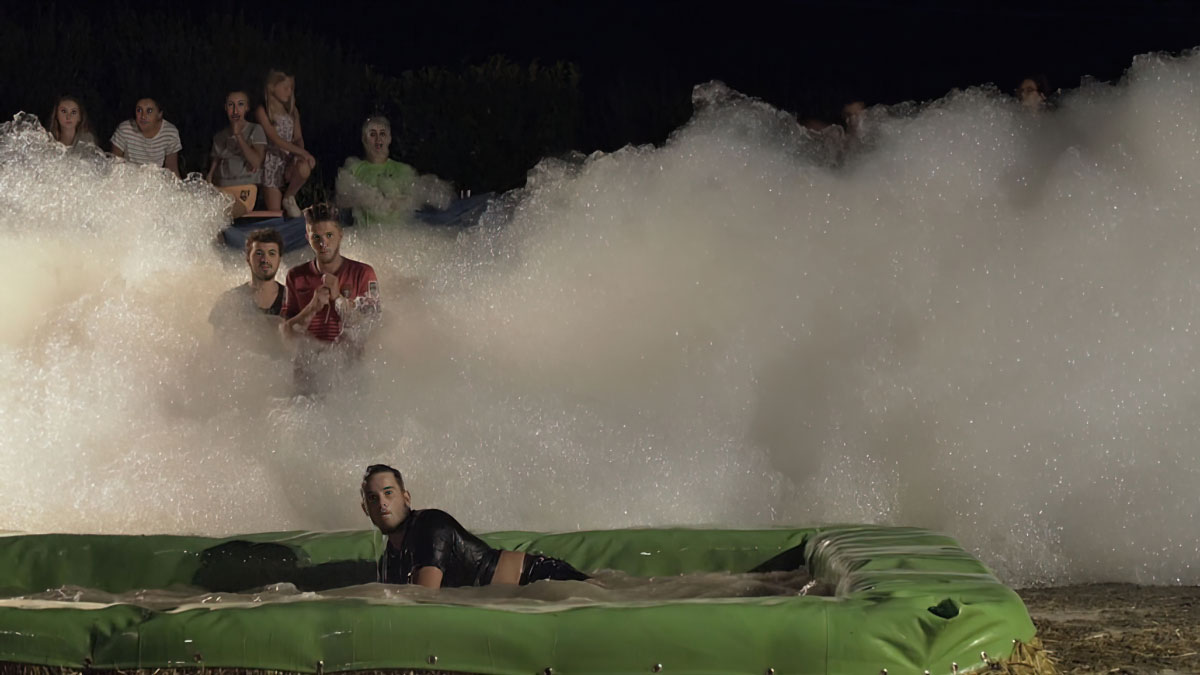 Artist and filmmaker Yalda Afsah explores how space can be cinematically constructed and the documentary character of her works often veers towards forms of theatricality. This formal characteristic of Afsah’s practice is conceptually mirrored in her documentary portraits of human-animal relationships that reveal an ambivalence between care and control, physical strength and broken will, instinct and manipulation. Afsah seeks to question and to dissolve these dichotomies, while carving out a space to reflect on the possibility of an overarching empathy between species.
Artist and filmmaker Yalda Afsah explores how space can be cinematically constructed and the documentary character of her works often veers towards forms of theatricality. This formal characteristic of Afsah’s practice is conceptually mirrored in her documentary portraits of human-animal relationships that reveal an ambivalence between care and control, physical strength and broken will, instinct and manipulation. Afsah seeks to question and to dissolve these dichotomies, while carving out a space to reflect on the possibility of an overarching empathy between species.
By Efi Michalarou
Photo: Kunstverein München e.V. Archive
“Every word was once an animal”, Yalda Afsah’s first institutional solo exhibition, at Kunstverein München, is focusing on questions of power, care, and control in relation to domestication. Using three examples—bullfighting, horse dressage, and pigeon breeding—she examines the blurred boundaries between affection and identification with animals on the one hand, as well as submission and human domination on the other. In the conditioning of animals, anthropocentric power relations become evident. Afsah’s works reveal the ambiguous character of the forces that operate at the center of these relationships. She directs our gaze to the moments when the bodies of humans and animals are marked by an uncanny closeness: the camera lingers on the aesthetic yet unnatural movements of a horse, focuses on the concentrated aggression of a bull, or follows the gazes of men searching the sky for pigeons performing falls. The film trilogy “Tourneur” (2018), “Centaur” (2020), and “Roller Pigeons” (in progress), created over the course of five years, centers on questions of power, care, control, and submission in relation to contemporary forms of animal training and codependency in interspecies relationships. It also sparks related questions pertaining to seeing and being seen, construction and reality. This cinematic series simultaneously records and fictionalizes its characters and their circumstances. In all three films, the animal is often just as aware of the recording camera’s eye as the human. Indeed, it is the bull and not the human that suddenly breaks the fourth wall and abruptly turns its gaze to the viewer in “Tourneur”. While the young adults do not even dignify us with a glance, their luring of the bull, their fleeing, their skinny- limbed tension in standing still and waiting, resemble a performance. It seems as if they are enacting the “strong boys” for both the bull and the camera: their exaggerated, theatrical, desperate, and sometimes comical gestures seek to express strength, courage—the idea of what and how men should act. With uneasy looks, the youngsters alternately take cover or move to attack when they feel safe—or when the boredom of waiting overcomes them. “Centaur” focuses on classical equestrian dressage, characterized as it is by a physical relationship between human and animal manifesting in sequences of movements controlled down to the smallest detail. In close-up shots, the camera pans across the horses’ bodies, perceiving them as strange, unknown landscapes. The last film in the trilogy looks at pigeon dressage. After special breeding and training, the birds perform repeated backward flips mid-flight called “tumbling.” To the untrained eye it seems like a staged, controlled fall. Pigeons, actually domestic animals gone feral, have acquired many negative symbolic and metaphorical connotations. Formerly used as messengers, they have escaped their taming and today, as Marion von Osten writes, the pigeon is “a Stray Cat of the air, a feral animal that profited from Gründerzeit stucco, facades with ornaments and wall crevices, and found its ideal habitat in the stone city”.
Photo: Yalda Afsah, Tourneur, 2018, video, colour, sound, Duration: 14’, Supported by Ammodo and Ifa – Institute for Foreign Cultural Relations, Courtesy of the artist
Info: Kunstverein München e.V., Galeriestr. 4, Munich, Germany, Duration: 15/1-3/4/2021, Days & Hours: Tue-Sun 12:00-18:00, www.kunstverein-muenchen.de
